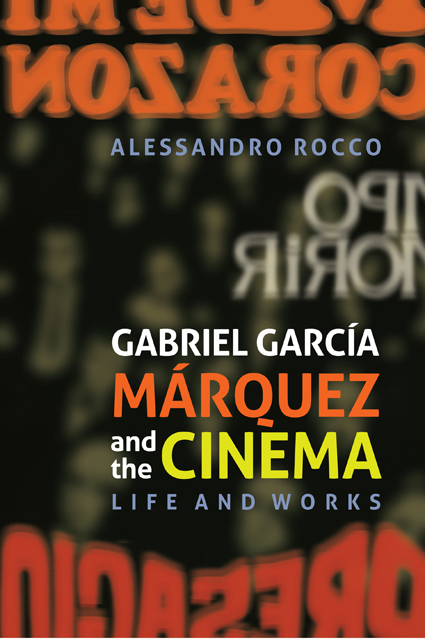Book contents
- Frontmatter
- Dedication
- Contents
- List of Illustrations
- Acknowledgements
- Preface
- 1 The Cinema in the Life of García Márquez
- 2 Tiempo de morir
- 3 Films from the 1970s: The Ghosts of Realism
- 4 Screenplay and Revolution: ¡Viva Sandino!
- 5 Magic Realism in the Cinema
- 6 Six Episodes for Cinema and Television: Amores difíciles
- 7 Con el amor no se juega
- 8 The Fantastic on Television: Me alquilo para soñar
- 9 History and Tragedy: Edipo Alcalde
- Afterword: Works by García Márquez Adapted for the Cinema
- Bibliography
- Index
3 - Films from the 1970s: The Ghosts of Realism
Published online by Cambridge University Press: 24 February 2023
- Frontmatter
- Dedication
- Contents
- List of Illustrations
- Acknowledgements
- Preface
- 1 The Cinema in the Life of García Márquez
- 2 Tiempo de morir
- 3 Films from the 1970s: The Ghosts of Realism
- 4 Screenplay and Revolution: ¡Viva Sandino!
- 5 Magic Realism in the Cinema
- 6 Six Episodes for Cinema and Television: Amores difíciles
- 7 Con el amor no se juega
- 8 The Fantastic on Television: Me alquilo para soñar
- 9 History and Tragedy: Edipo Alcalde
- Afterword: Works by García Márquez Adapted for the Cinema
- Bibliography
- Index
Summary
The three films made by Mexican directors in collaboration with García Márquez in the 1970s have in common an unmistakable social and political critique, reflecting the Colombian writer’s involvement in politics in those years. There is also one other aspect that links the three films in question: the representation of reality takes on such gloom that it comes to figure as a genuine nightmare. In the first two films, based on collective, choral stories, we witness a chaotic, all-enveloping dissolution of the social order, triggered by sensational events such as the premonition or the plague epidemic. And in the third it is the concurrence of particular circumstances that disrupts the tenor of the characters’ lives, bringing about uncontrollable situations to which they are powerless to react. In all three films the normality of everyday life is upset and dominated by the materialisation of deep-seated fears and anxieties, both in the characters’ private sphere and in the collectivity as a whole. In this sense, over and above the differences between the three screenplays, it is clear that they all issue from a darker and more anguished sphere of García Márquez’s creative imagination, which is seen at work here conjuring up ghosts and undermin-ing any reassuring illusions concerning reality. Spectators are constantly disenchanted and disconcerted as any positive potential is systematically thwarted.
Presagio
In the novel La mala hora there is an episode in which Padre Angel meets an old blind woman busy making artificial flowers, who suddenly exclaims: ‘The world is coming to an end this year.’ The parish priest expostulates against such superstition, but the blind woman insists: ‘Blood will run in the streets and there won’t be any human power capable of stopping it’, and later on, ‘burning ashes will rain down on her head.’ In one of the versions of the screenplay for Presagio the character of Mamá Santos utters the same words: ‘burning ashes will rain down on our heads.’
In the novel this is a marginal situation with respect to the plot, in which the fatal and inexorable ruin of a small town has an explicitly political matrix, while in the screenplay the same situation constitutes the core of the story.
- Type
- Chapter
- Information
- Gabriel García Márquez and the CinemaLife and Works, pp. 69 - 86Publisher: Boydell & BrewerPrint publication year: 2014

